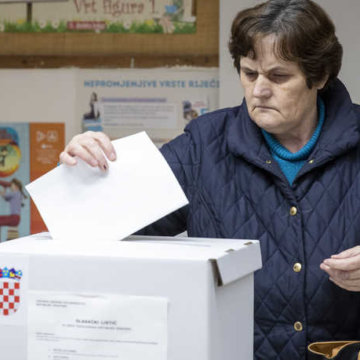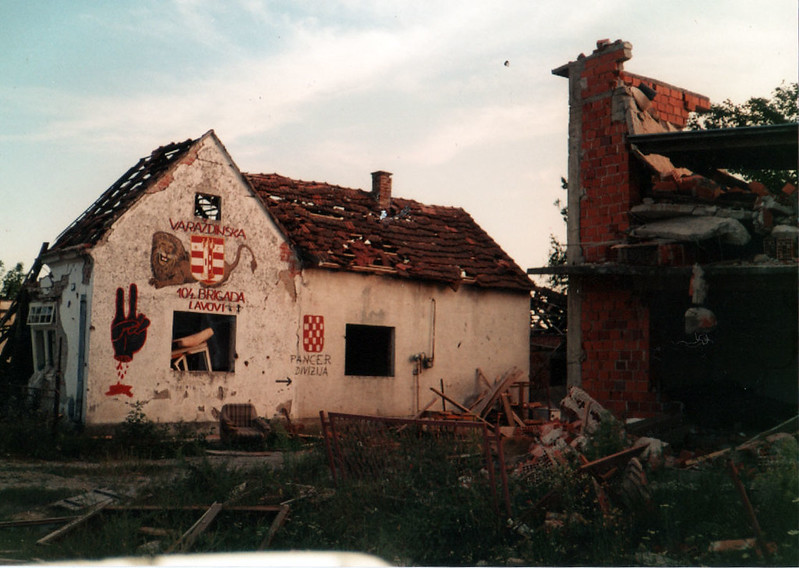- About
- Topics
- Picks
- Audio
- Story
- In-Depth
- Opinion
- News
- Donate
-
Signup for our newsletterOur Editors' Best Picks.Send
Read, Debate: Engage.

| topic: | Election |
|---|---|
| located: | Croatia |
| editor: | Katarina Panić |
On December 22, Croatians will vote in the first round of the presidential election. The centre-right incumbent Kolinda Grabar-Kitarović will seek a second term backed by the ruling Croatian Democratic Union, HDZ. According to politico.eu, she is narrowly ahead, followed by opposition Social Democrat candidate and former Prime Minister Zoran Milanović.
The next in opinion polls is folk singer Miroslav Škoro, who is running as an independent but has been endorsed by a number of centre-right and right-wing parties and personalities. If no candidate gets a majority of all votes cast, a second round is set for January 5.
With limited constitutional powers, the president has a largely ceremonial role. Yet, the campaign confirmed again the society is obsessed with the past, with candidates behaving reactively rather than proactively, mostly accusing each other rather than promoting their own agenda. It seems the past is again much easier to deal with in front of the potential voters than facing the present challenges: depopulation, over-indebtedness, human rights violations, the lack of media freedom, and migration.
This year the significant number of physical attacks on the national minorities, mostly Serbs, has been recorded all over the country. Activists repeatedly warn the minority’s rights are on the lower level than before the country joined the EU six years ago. Some say it is a result of a “creeping fascination of society”, others even qualify recent years in Croatia as an epidemy of fascism.
“In its accession process, Croatia has stifled all negativities in order to close all chapters and become a member of the Union. Once it has become part of the EU, there are no control mechanisms. Obviously, some things were done formally to satisfy EU accession, not to be substantially handled”, Ante Nobilo, an experienced lawyer in international humanitarian law told local media.
Such attacks are not isolated cases but a systemic problem that has influenced the behaviour of the authorities and the creation of an atmosphere in which the Croatian WWII fascist Ustaša movement is still popular among Croatian nationalists and widely tolerated.
“The attacks on the minority are a tool to discipline the majority. When I explain that to young Croatians, they look like they are surprised. They do not think in that way”, Aneta Vladimirov, representative of the Serb minority in Croatia, emphasises.
Renowned Croatian columnist Ante Tomić last week published an article on how Croats should learn the lessons from Angela Merkel who just visited Auschwitz and clearly named the place as “a part of a German Reich” and “a German extermination camp operated by Germans”.
The journalist quoted German chancellor, noting she didn’t ask for mercy nor compassion. He added that Merkel did not try to find an excuse for the crime, did not diminish the crime and did not mention any other offenders, German civilian victims, German soldiers suffering in Soviet camps years after the war nor German women raped by the Red Army soldiers.
All of these arguments are used by most of the Croatian politicians when it comes to the crimes committed by Croats both in WWII and the 1990’s war, that led the country to independence from Yugoslavia. Moreover, convicted offenders in Croatia are often given respect and take an active part in political life. Quite a challenge for the youngest member-state that will take its first-ever presidency in the EU in the first half of 2020.
